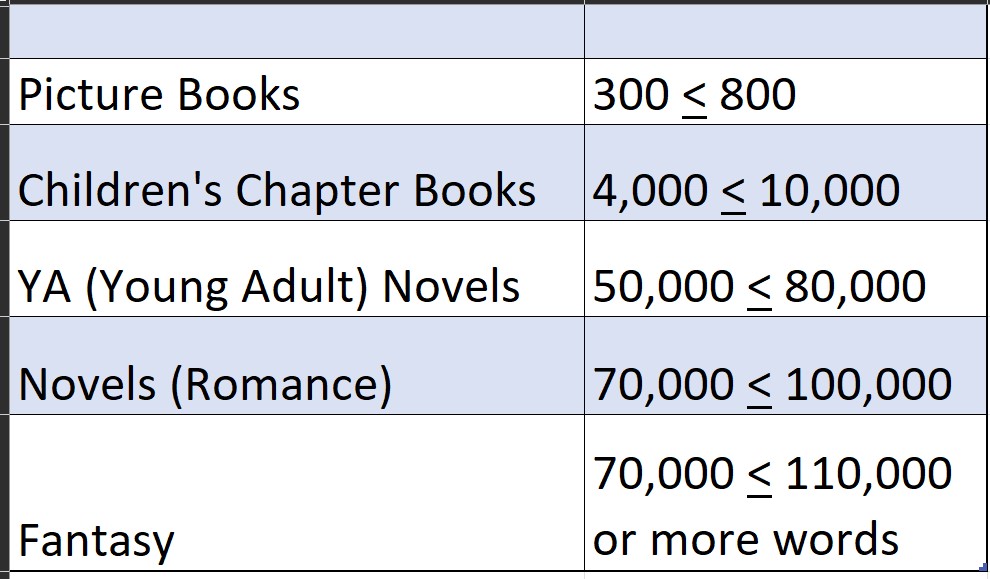The Top 5 Things to Know Before You Write
There are millions of people publishing across the globe. Someone's work will be the next in the line of blockbusters. Will that be yours?
There are many ways to publish. Check out the posts on types of publishing that dive into them in more detail here. Even after publishing, there is a lot of work behind the scenes by a lot of people. However, it all starts with the story.
There are several things essential to keep in mind before you begin your story:
1.Write What Readers Want Right Now.
Right now, you can turn on the T.V. and see ‘most popular’ T.V. shows, or movies. Most of those will have similar themes or concepts. They change often and some keep coming up year after year. It’s no secret that there are hundreds of different murder mystery police shows that entertain us and have been for decades. Or Hallmark romances that take over around Christmas time. Why? Because that’s what so many people are looking for.
It’s no different with print media.
Romance novels
Sci-fi thrillers
Children’s books
Young Adult books
Best sellers in the book world are really the equivalent of the ‘most popular’ in the television world. A quick study of what’s selling and how you can apply your story and skillset to it before you write may benefit you strongly in the long run.
2. Write What Publishers Want Right Now.
The best part about publishers is that they’ve studied the markets. They know the trends and sometimes even where things are headed. They can pick up your book proposal and consider if it will fit in any of those best seller niches. Here are some great ways determine what they are looking for:
Writer’s Market – Published annually. (Also available for free in most libraries.) It is a large catalog of magazine and book publishers, and outlays contact information and what types of books or articles they are searching for.
Publisher’s Website - Most publishers have a ‘submissions’ page that outlines how to submit, and what they are looking for.
Agent’s Website – This one’s tricky. Different agents usually choose different types and genres of books that they want to support but you can see trends through multiple agents looking for a certain type.
3. Know Your Word Count Basics
If you write a 3,500-word picture book, just know that it’s not a picture book. Every genre and type have a certain range of words that works for their readers. For instance, fantasy books are often into the 100,000 or more and the readers of that genre expect that. Romance novels are more around the 70k to 80k range.
Below is a sample of some basic word counts. If your genre isn’t below, a quick internet search will easily pull it up.

These word counts mean a lot. In the long run it’s what the readers of each type of book are used to. It also effects shelf space and what buyers see by how thick the book is on the shelf.
4. Know Your Genre.
Okay. Just knowing that vampire romances are popular will only get you so far. You’ll need to know not just how long your story should be, but the basic elements of each genre you write in. This will also help ensure you don’t fall into something that readers may object to.
Having a weakling for a heroine in a romance that is saved solely by the man would get many a modern woman up in arms. Writing a fantasy book without an excellently portrayed villain may not be a good idea. Luke Skywalker without Darth Vader would be boring. The more you study and know about a genre, the more you'll write what readers are looking for.
5. Pay Attention to What No One Wants.
Even if you’re self-publishing, paying attention to what publishers, agents and other industry professionals are saying can pay dividends. They know what is overdone or saturating the market. They know what readers are wanting to read so your story won’t be buried beneath a thousand others fighting for a spot. Many are not shy about stating exactly what they don't want to see.
An important note: No one wants books that offend any race, gender or type. The overweight friend who portrays the comedic extra. The African American man always being the bad guy. The combat veteran who’s always the anti-government shooter. Stay away from stereotypes in your writing at all costs. The world will thank you, and your writing will be better for it.
